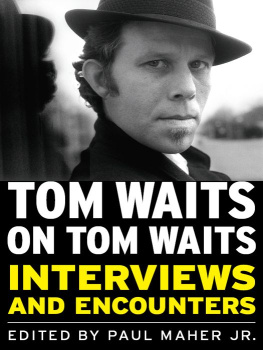The Stature of Waiting
By the same author:
Loves Endeavour, Loves Expense
Icons of the Passion
The Stature of Waiting

W. H. Vanstone


Copyright 1982, 2006 by W. H. Vanstone
All rights reserved. No part of this book may be reproduced, stored in a retrieval system, or transmitted in any form or by any means, electronic, mechanical, including photocopying, recording, or otherwise, without the written permission of the publisher.
This edition first published in Great Britain in 2004 by Darton, Longman and Todd Ltd, 1 Spencer Court, 140-142 Wandsworth High Street, London, SW18 4JJ.
American edition published by
Morehouse Publishing, P.O. Box 1321, Harrisburg, PA 17105
Morehouse Publishing, 445 Fifth Avenue, New York, NY 10016
Morehouse Publishing is an imprint of Church Publishing Incorporated.
Cover design by Corey Kent
Library of Congress Cataloging-in-Publication Data
A catalog record of this book is available from the Library of Congress
Printed in the United States of America
060708091098765432
Hunc cui et alterum
grato animo
dedico librum
Contents
Preface
This book is a small and limited exercise in what Paul Tillich called the method of correlationa method which he thought appropriate to theology, which he taught to his students and which he himself followed with so great distinction. The method implies that there is a dialectical relationship between divine revelation and human perception: that what we are told in revelation is only understood in the light of our perception of the world around us, while at the same time our perception of the world is itself illuminated by the light of revelation.
Some time ago I turned my mind to a small factual puzzle in the story of Jesus which had bothered me from childhood. Gradually through attention to the puzzle I detected a certain emphasis running through the story, and through the emphasis a themea theme which seemed to resonate with certain quite ordinary facts and experiences of contemporary life. To define that resonance, to identify and draw out a particular thread of connection between the story of Jesus and the way we see the world today is the purpose of the pages which follow.
The argument is set out more or less in the sequence in which it developed in my own mind. It did not develop easily, and many times I found myself straying into by-ways or tracing my steps back from dead ends. Groups who heard parts or facets of the argument were encouraging, and I am grateful to them. But nothing coherent would ever have emerged but for the interest and encouragement of three old and trusted friendsBishop Victor Whitsey, Canon David Wyatt and Mr Michael Daman. Each in his own particular way helped me to believe that I was not following a Will-othe-Wisp or searching for a mares nest; and I am very deeply grateful.
My warm thanks go also to the Dean and Canons of Chester for allowing me time to think, and to my publishers, Messrs Darton, Longman and Todd, for bearing with my many procrastinations.
W. H. Vanstone
Chester 1982
1
The Deed of Judas
A generation or so ago it was the custom in many churches to arrange in Lent or Holy Week a series of sermons with some such title as Characters Round the Cross or Actors in the Drama of the Passion. A preacher or a number of different preachers would invite the congregation to reflect on the characters of certain people, on their strengths and weaknesses, and on the part which they played in the last days of Jesussuch people as Simon Peter, Pontius Pilate, Barabbas the Robber, Simon of Cyrene, Mary of Magdala and, invariably, Judas Iscariot. When I was young I listened to a good many sermons about Judas Iscariot.
The details of these sermons about Judas have long since faded from my memory. But a general impression remains that the preachers were principally concerned with the motives of Judas in doing what he did. One preacher would be content to represent him in the traditional way as a man in whom the love of money had become dominant over every other motive. Another would put forward the suggestion that Judas principal motive may have been a certain resentment at his exclusion from that trioPeter, James and Johnwho formed the inner circle of Jesus associates. A third would suggest that Judas, an able man, may have become irritated by Jesus apparent failure to take the opportunities which were offered to Him; and that such irritation, deepening into disillusionment and bitterness, may have been Judas primary motive in doing what he did. Some of these suggestions and explanations were no doubt rather speculative, but often, to the best of my recollection, they were quite interestingly presented. At least they reminded the hearers that, as Dostoevsky puts it in The Idiot: The causes of human actions are usually immeasurably more complex than are our subsequent explanations of them, and can rarely be distinctly discerned.
But I also remember that, even when I was young, most of these sermons about Judas left me somewhat dissatisfied. I felt let down because they did not answer, or even ask, a question which seemed to me very important. It was the question whether the deed of Judas had any actual effect on the course of events: whether it really mattered and, if so, in what way it mattered. The preachers all seemed to assume that it mattered a great deal, for they used of Judas such phrases as he sent his Master to His death, he had Jesus blood on his hands, through his greed or resentment or disillusionment he became guilty of the greatest crime in history. But for myself I could not see that this was in fact the case. I could see of course that Judas had done a very shameful deeda deed at least as shameful as that which Peter did when he denied that he knew Jesus or that which the other disciples did when they forsook Jesus and fled from the Garden of Gethsemanea deed perhaps even more shameful for being premeditated. But I could not see that this deed of Judas had been of any great importance, that it had had any decisive consequences or any major effect on the course of events during that Passover season in Jerusalem.
For it seemed to me then, as it still seems to me now, that if Judas had done nothing at all events would still have taken much the same course. The deed of Judas was by no means necessary to bring about the arrest of Jesus and to set in train the sequence of events which ended in His crucifixion. For it appears from the Gospels, which are our only evidence, that in His last days in Jerusalem Jesus did not live in hiding or move around secretly as the Scarlet Pimpernel moved around Parisa man of many disguises who could only be arrested by his enemies if He were first identified to them by a traitor among His friends. Jesus could not be betrayed as many an escaped prisoner or underground agent was, or might have been, betrayed in the last war. For it appears that Jesus lived quite openly and that His opponents or their representatives could find Him without difficulty when they wished to hear or criticize His teaching or to pose hard questions to Him. Presumably, therefore, they could have found Him with no greater difficulty if and when they wanted to arrest Him. Admittedly it might have been indiscreet to attempt an arrest when He was surrounded by crowds of attentive and perhaps enthusiastic pilgrims from Galilee; but it was surely not beyond the capacity of politicians and scheming priests to have Him shadowed by some of their own men and a report brought of His whereabouts when He was more or less alone. What Judas offered to do may have been welcomed as a convenience by the opponents of Jesus, but it can hardly have been regarded as a necessity. So if Judas had made no offer the last events of the life of Jesus would have proceeded in very much the same way. Judas deed was certainly shameful; but it did no more to change the course of history or to bring about the death of Jesus than did Peters denial or the somnolence of the three disciples who were set to watch in the Garden of Gethsemane or the later flight of the whole band.
Next page









